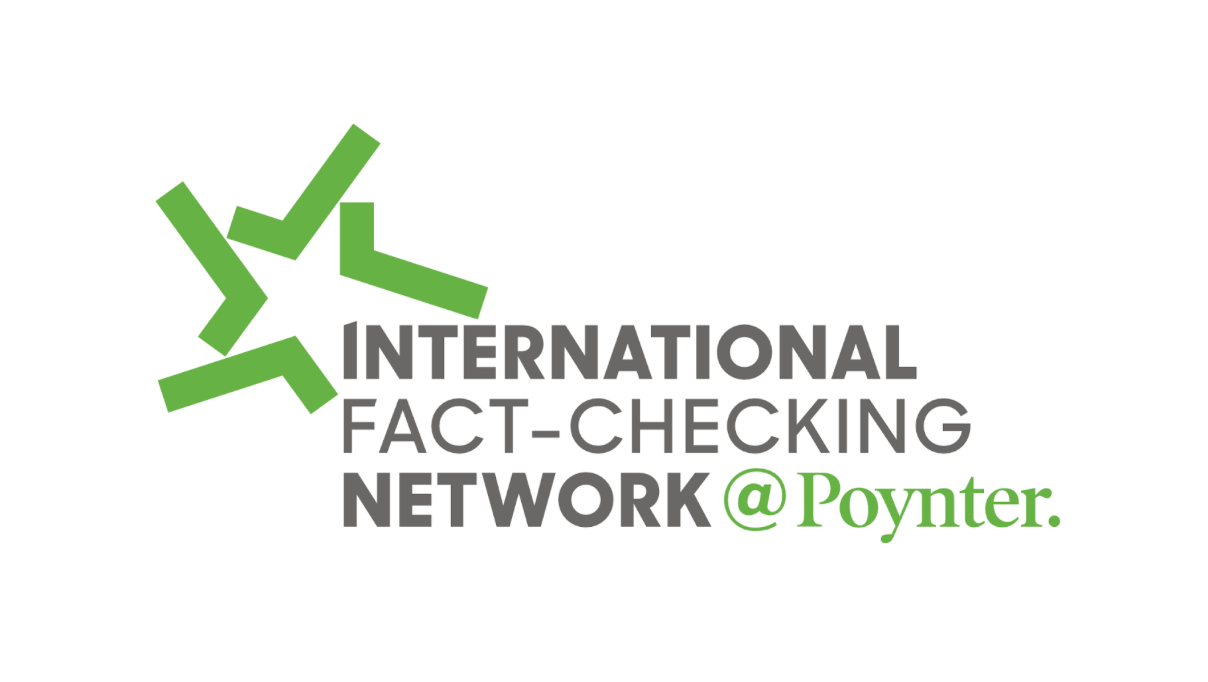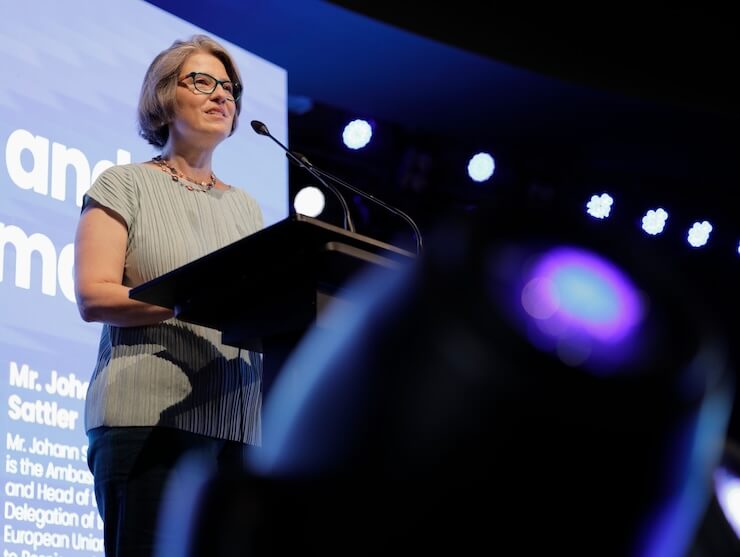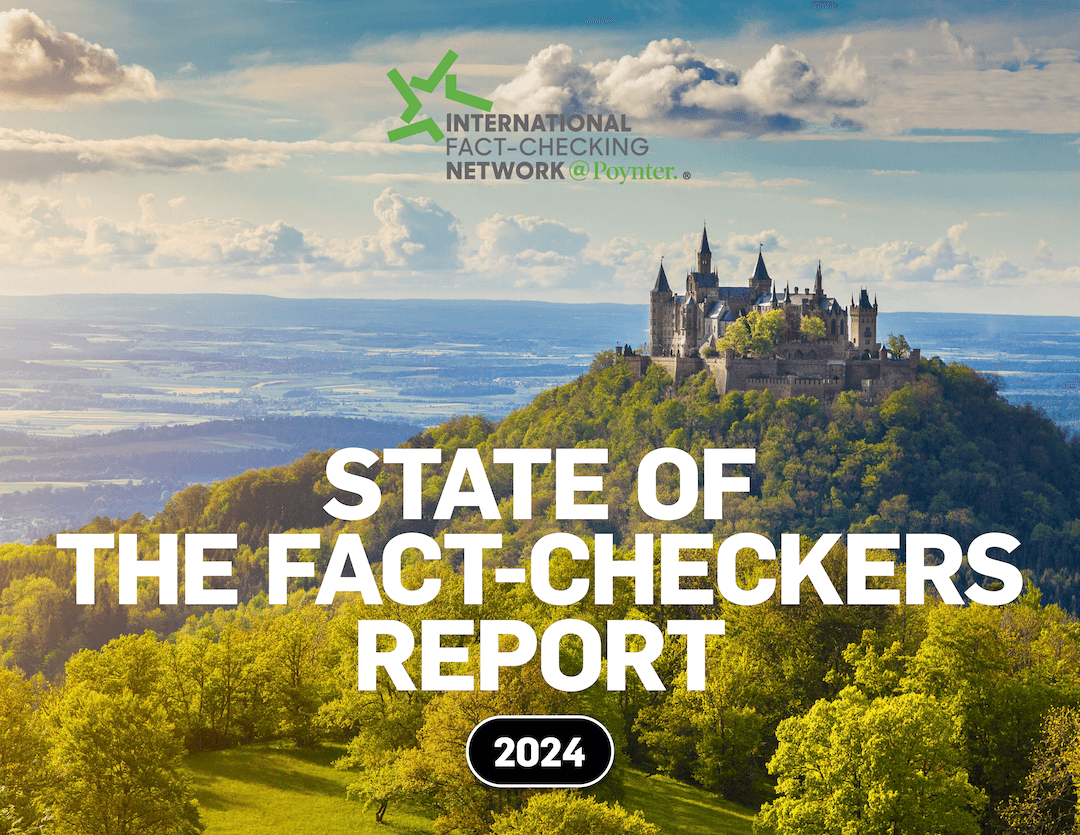The Cohort is a Poynter newsletter about women kicking ass in digital media.
Since Nov. 8, 2016, the headlines have been never-ending — a constant stream of breaking news alerts and around-the-clock coverage. We haven’t been able to take a breath and think about what this year has been like for us, the people producing all that coverage, and what we’ve learned from the experience.
This week is prime time for a post-mortem. Since Donald Trump was elected president, we’ve done plenty of journalism navel-gazing. We’ve analyzed how we were blindsided by the election results. We’ve worried about public trust in the media. We’ve wondered whether the rules of objectivity still apply.
But we haven’t had time in the past 12 months to truly pause and reflect.
There are a lot of things journalists can post-mortem this week. I propose starting with ourselves. How have we survived the past year? I suspect, based on conversations with people across the industry, that many of us are barely holding on. We’re tired and dangerously close to burnout. We’re eyeing the end of 2017 with glee, hoping that the new year will magically offer an opportunity to slow down and recharge.
It’s almost impossible to find a calm and natural point that allows us to stop, reflect and identify lessons. You have to make those moments happen. So, with 12 months behind us, I asked what you’ve learned — how you’ve learned to manage the breakneck pace of news. Your answers were practical but not life-changing, helpful but not cure-alls. But they’re a much-needed guide for where to start.
Get off social media. The most common piece of advice shared was to break away from Facebook and Twitter. Some of you started deleting the Twitter app during vacations and weekends. Others turned off Facebook notifications. No matter the approach, being more mindful about when you’re on social media and getting more comfortable with the idea of being off social seemed to offer some much-needed peace of mind.
Establish new workflows. Between late-night presidential tweet storms, an onslaught of mass shootings, a devastating hurricane season and everything in between, avoiding breaking news outside of working hours is no small feat. Leaders like Kelsey Proud, managing editor of digital at WAMU, have adjusted team schedules to better identify the boundaries between work and life. “I make sure my staff have concrete on-call schedules so they can carve out time to truly unplug or detach — and do my best to serve as example in that regard,” Proud said. Another tactic is to identify which times are busiest and slowest at work. Does the normal 9-5 schedule still make sense for you and your team, or are you working early and staying late? Are Wednesday afternoons a good time to introduce team walks to soak up some sunshine? Now is a good opportunity to test out some creative schedule approaches, even if they are temporary.
Be purposeful in your time away from work. Many women spoke about being more thoughtful in how they spent their waking hours outside of the office. Ethar El-Katatney, executive producer at AJ+, now travels for leisure one weekend a month. “It brings me an insane amount of happiness to travel plan,” she said. “When I’m feeling super low, I open up my travel app and look at the trips I have coming up and it makes me happy.” (El-Katatney also shared dozens of other fantastic ways she’s improved her work and life on Medium.) Exercise — and really focusing on that activity — also recharges the brain. “My tennis game has improved dramatically,” said Shira Toeplitz Center, political editor of The Boston Globe. Others enjoyed escapist comedy shows to watch in the evenings or engrossing fiction books to read before bed.
Reconnect with loved ones. “On weekday evenings, I intentionally don't watch TV or listen to news so I can spend quality time with family. They're my oasis,” said Kari Cobham, senior manager of digital content for Cox Media Group. That sentiment was echoed among many. People described spending more time with friends, setting up regular date nights, calling family members and talking with non-journalists about current events.
Enjoy nothingness. Whether it’s eating lunch away from your desk, going for a walk without your phone, meditating or just appreciating silence, many of you discovered peace in quiet moments this year. Those rare periods for reflection helped you feel more centered and in touch with how you’re feeling. “I cry,” said a journalist who asked to remain anonymous. “I allow myself to be profoundly disturbed and deeply worried.”
It’s okay to cry. It’s okay to turn off social media. It’s okay to admit you need a break. It’s okay to be proud of all you’ve accomplished in these past 12 months. This work is important. You are too.
xoxo
KHG
Get those applications in!
You’ve got until Nov. 30 to apply to the 2018 Leadership Academy for Women in Digital Media. In case you missed it last week, here’s what you need to know about the program.
Things worth reading
Still wondering why this year has felt so mentally exhausting? This visualization of New York Times push alerts is amazingly effective. “There was, this weekend, that rarest of things: the American public, applauding a furious woman.” I very much related to Lizzie O’Leary’s essay analyzing the now-horrifying harassment she shrugged off in the past. File under encouraging news we could all use: Half of the S&P 500 directors added this year were women and/or minorities. Feeling down? Spend time with more people irl!
Meet Imaeyen
I keep a running mental list of journalists who manage to kick ass at their jobs and kick ass in life. I’m always a bit in awe of them. And Imaeyen Ibanga has long been at the top of that list. Ibanga is a senior context producer at AJ+ and was a member of the first Leadership Academy for Women in Digital Media. She’s also hilarious, insightful and SO SMART.
I usually include ages with these profiles. When I asked Ibanga how old she is, she was her usual amazing self. “I'm going to tell you what my Nigerian parents have told me when I have ever asked about their ages: ‘That's none of your business. Now face the front.’ I'd also like to add my personal mantra, ‘Let me be great.’”
So I’ll let her do just that. Our interview has been edited for length and clarity.
It's been a year since Trump was elected. And what a year it's been. How are you feeling?
A year after Donald Trump won the presidency I am feeling as invigorated as I am intrigued and determined. Covering the election cycle last year, I felt there were a lot of things large journalism organizations were missing. And I said as much at the time. The industry wasn't using clear, precise and relatable language. It relied on many of the same stories we see every presidential year, but 2016 was unconventional. We lacked diversity in our stories and there was this feeling that journalism could continue to do things as it had been for so long.
2016 was the journalism industry's overdue awakening. We were forced to make the case for ourselves with the public, who no longer trusted us. For years we assumed the nation agreed what we did was an important service and the election cycle showed that was no longer true. I think it's reignited the passion in so many journalists and made us more transparent. We're making our case on daily basis with our coverage and there's a push to get more inclusive newsrooms. It's made journalists speak more conversationally and in a way that's easily accessible.
I love reading and seeing all the stories and seeing all the different videos journalists are doing. I see the creativity, the thoughtfulness and context that we should have always had.
I love that we're doing a much better job of putting things in the context of their time — like the way the nation has responded to today's opioid epidemic as compared to the crack cocaine health crisis of the 1980s and 1990s.
Seeing all the great work makes me want to better my work. And reading all of our critics makes me listen to them to see if there's any validity to what they're saying. I want to try to find a way to reach beyond our traditional audience. I look forward every day to doing work that is "objectively true," which is a term I've begun using to describe facts.
It's also been a big year for you personally. You moved from New York and NBC News to San Francisco, where you joined AJ+ as a senior producer. What are some of the biggest lessons you've learned from making such a big move?
I learned America is huge. It's one thing to know it and it's another to literally see it as you drive cross country from the nation's biggest city through Midwest, plains, desert and mountains. Iowa smells great and Wyoming has a sky so unobscured it totally was unrecognizable to me. The other thing I learned is that if you're not a little bit nervous, you're probably not doing it right. You're not growing and challenging yourself. That tension keeps you alert and curious.
I took a new job in a new city I'd never even visited, doing new things I'd never done — like being on-air and managing a team full-time. It's easy to say it's the best decision I made in 2017, but that doesn't mean I didn't agonize over it. I loved New York City and my NBC News family. The thought of moving to AJ+ for my current role made me nervous and because of that I knew it was something I had to explore.
You go to the gym, take dance classes and pretty much constantly make me want to be a better person. Tell me about your exercise routine and why it's so important to you.
The key to being a great dancer is to have friends who move so much worse than you do. This is why everyone thinks I'm an amazing dancer. Again, context matters. I would not dance with Beyoncé. I'm lying. I would because it would make me nervous, which for me also translates to determined.
My exercise routine includes weekly hip-hop dance and yoga classes. I also try to do some form of weightlifting once a week because I really want to be strong. And just my daily work commute clocks 9,000 steps.
Exercise is important to me for a few reasons. First, it allows me to move my body in a way I otherwise wouldn't. It engages the mind and helps it think differently, focus in a new way, see and feel things I otherwise wouldn't. All of that helps me be a better journalist. Can I see the slight the change in rhythm even if the choreography is the same? Do I feel how far I can reach in a bind today as opposed to last week?
Secondly, exercise is a good stress reliever. Journalism is capital ‘s’ Stressful. Being a journalist is stressful. I want to live a long life, so I can tell "the kids," AKA 40-year-olds, how it was back in my day. Getting my blood pumping by doing something I genuinely enjoy like dancing is going to help me reach that goal.
And lastly, there's the competitive aspect. I want to do better and be better until I'm the best and that means I'm always working to improve. In dance, I'm always looking at the best dancer and trying to mimic her and then add my own essence. I see what she does well, learn from that, and try to add it to what I do well.
What are some other ways you take care of yourself?
Sleeping well is one of the very best ways to take care of yourself and yet so many people don't take it seriously. Great sleep changes your life, lifespan, outlook and demeanor. I'm made of energy and recognize I'm abundantly more energetic than most people. I've often wondered if that was because of sleeping habits I developed. The other thing I do is move. I move my body. I move my mind by reading and watching new things. But the most important thing I do is spend time with the world's best kitty, Lady Snuggles Ibanga. She's such a great influence — except when she's being greedy. She's what they call "food motivated."
How can you tell when you're getting close to burnout? Are there telltale signs?
I know I'm close to burnout when I begin to become disengaged. I care a lot and when I see myself having little or no feeling about something, it's an indication something is happening and there are changes I have to make.
You're a manager now, which brings all sorts of responsibilities. How do you set an example for your team and help ensure they have a healthy work-life balance?
I dance in the newsroom and I'm not kidding. (Have I mentioned how much I love dance?) It's amazing what a little shoulder shimmy will do for morale and creativity. Recently it helped with one producer's on-air delivery. It was great having everyone join in.
My boss and I encourage the team to use all of their paid time off. They've earned it, they should use it. There are days where we grind and push hard, so I try to work in some lighter days. I let them know vocally how proud I am of them and I always make sure to check in at the end of the day to see how long people are staying. I keep a mental tab and I will tell a producer not to stay late if I see it's an ongoing pattern. A healthy producer is an engaged one.
I'm going to guess there's someone reading this Q&A who is incredibly run down, maybe eating lunch at her desk, feeling bad that she has so many unhealthy habits. What would you tell her?
Everything is one meal at a time. Beating yourself up accomplishes nothing productive. Start with something easy like committing to packing your lunch AND SNACKS. SNACKS ARE KEY.
Try to take time to eat and not work at least 3 times a week — even if you never leave your desk. That means spend the 15-20 minutes not answering emails, paying attention to what you're eating and letting it register in your mind.
Get up and walk around the newsroom. Not only does it get your blood flowing, but it's a good way to connect with colleagues who aren't around you.That's how relationships are built. Walk to the far bathroom and do 10 jumping jacks. I used to do that all the time at NBC. At AJ+ we have twice daily planking sessions so I do that now.
Also, do a couple of stretches at my desk during the day. It really makes a difference. Don't get overwhelmed with the big picture. Tackle one thing at a time.
Enjoy this newsletter? Tell your friends and coworkers.
The Cohort is part of Poynter’s Leadership Academy for Women in Digital Media. Thanks to Kristen Hare, a model of work-life balance, for her edits and insights.









